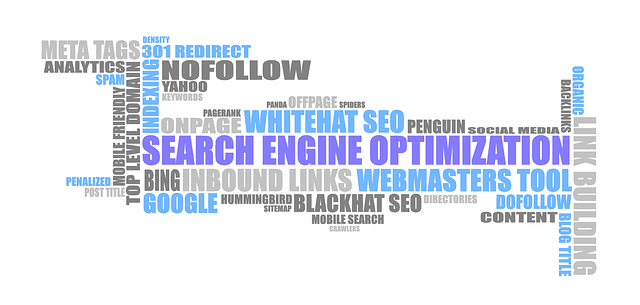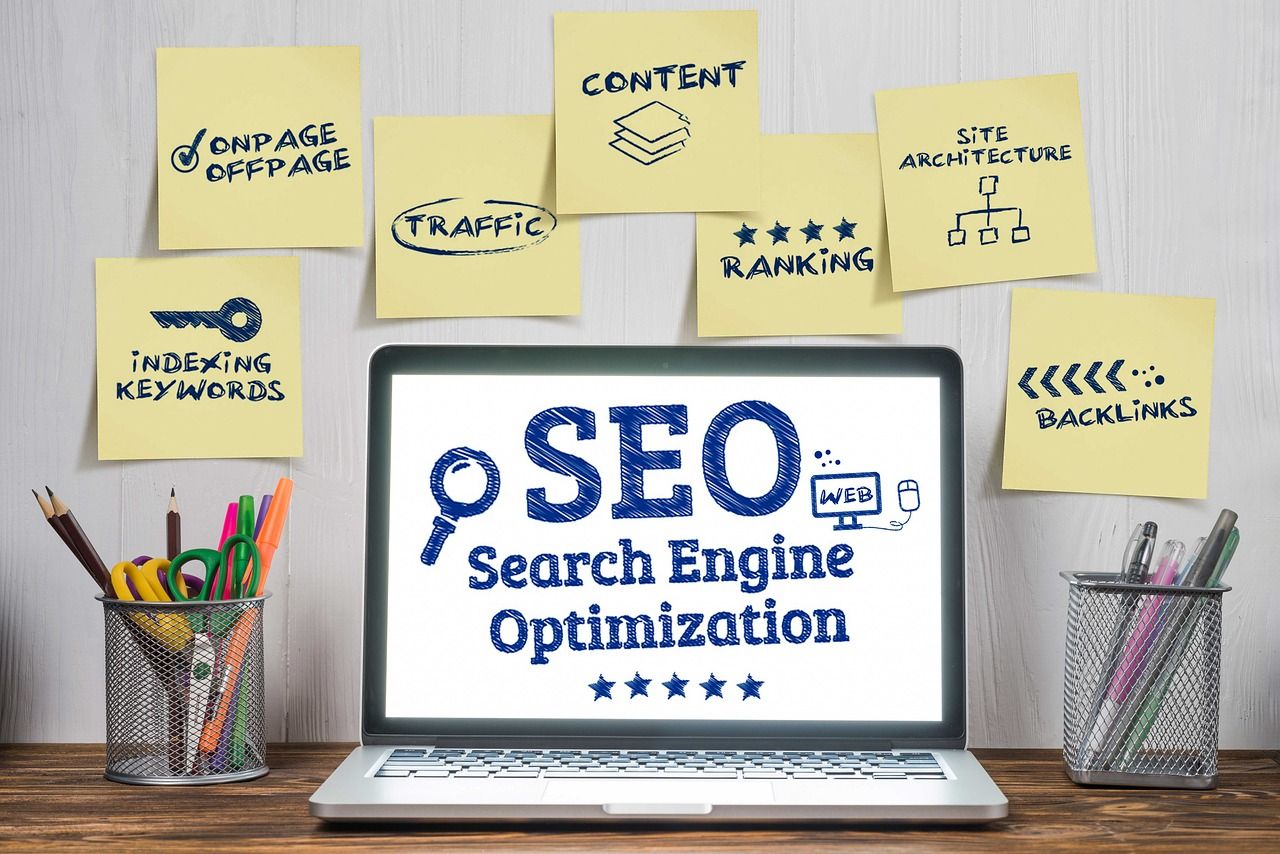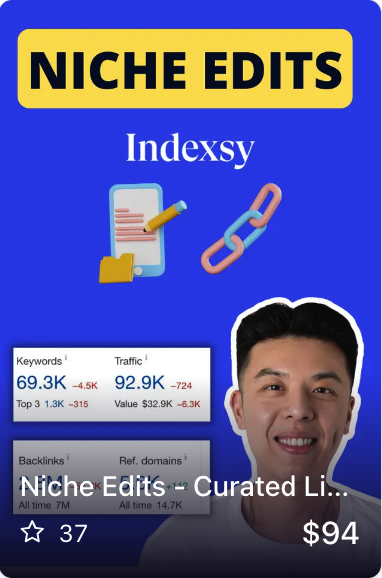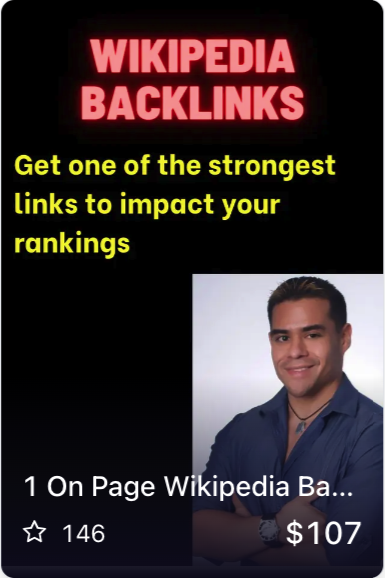Strategic 6-Month Blueprint for Enhancing Off-Page SEO Authority

In today’s digital world, a comprehensive SEO strategy that encompasses both on-page and off-page optimization is essential for businesses and website owners to establish trust, authority, relevance, increase website traffic and to differentiate themselves in a competitive and saturated digital marketing landscape.
Off-site SEO is like a team of ambassadors representing your website to the world, and just as ambassadors represent their countries and promote their interests, strategic off-page SEO efforts can help you enhance your website’s online reputation and authority through various techniques such as content marketing, link building tactics, social media, influencer outreach, organic search traffic and more.
By having a well planned strategic off-page SEO strategy, you can ensure that your ambassadors are well-chosen and well-positioned to represent your website in the best possible light, ultimately leading to higher rankings and increased traffic.
Moreover, leveraging off-page SEO techniques such as link building, social media promotion, and influencer outreach can boost the quality of your website’s content, thereby signaling search engines that your website is relevant and authoritative, ultimately resulting in improved rankings.
The key point here is quality – the higher the quality of your website content both on-page and off-site, the more likely you are to establish trust and authority with search engines.
With this 6-month off-page SEO plan and implementing a sound marketing strategy, you can leverage various off-page SEO techniques to improve your website’s relevance and authority in Google search results.
The end result? A website that’s well-optimized trusted by search engines, and positioned for success. You’ll also understand the direct correlation Google search has between the quality of your links and your website’s authority and evergreen traffic. By following this seo strategy, you will be able leverage these off-page SEO techniques to signal search engines that your website is relevant and authoritative, ultimately resulting in improved rankings and increased organic traffic.
Let’s dive in and get started!
Best SEO Services on Vettted
Check out these vetted services to grow your organic traffic.
Mastering Off-Page Search Engine Optimization The Key To Increased Traffic & Authority

Off-page Search Engine Optimization (SEO) is a critical component of your digital strategy aimed at amplifying your online presence, increasing your share of voice in search, boosting your website’s authority and website’s search engine rankings . This comprehensive approach involves practices outside of your own website, including targeted and long-tail keywords, link-building, content marketing, social media marketing, guest blogging, podcasting, and video marketing. When effectively orchestrated, these elements enhance your website’s visibility and authority, primarily through acquiring backlinks from other reputable websites.
Off-page SEO is not just about increasing your online presence; it also encompasses local SEO optimization and extends to optimizing for other search engines like Bing and Yahoo. This holistic approach aligns with the core principles of technical SEO, on-page SEO, and superior user experience, all of which are fundamental in building online authority and driving organic traffic.
Recent updates to Google’s Algorithm and Quality Rating Guidelines have emphasized the importance of the E-A-T principle (Expertise, Authority, and Trustworthiness). These guidelines prioritize websites that demonstrate high levels of expertise, authority, and trustworthiness. In this context, your content should reflect first-hand experiences and in-depth knowledge. This involves optimizing your web pages’ title tags, meta descriptions, and blog posts, and creating content that truly resonates with your target audience. Crafting outbound links to other relevant websites and utilizing links pointing to other relevant pages on your website are key practices in this regard.
By focusing on enhancing trust and authority, demonstrating real-world experience, and producing original, valuable, and diverse content, you can significantly improve your search engine rankings and organic traffic. Building inbound links from other relevant web pages is a key part of this strategy, helping to establish your website as a trusted and authoritative source in your field. This comprehensive off-page SEO strategy is designed to increase your share of voice in search, elevate your website’s authority, and ultimately drive higher organic traffic and rankings.
Why Is Off-Page SEO Important?

Any effective SEO strategy is essential for improving a website’s ranking potential however off-page SEO can seem abstract and often overlooked. Off-page SEO refers to the process of optimizing content, building outbound links, creating inbound links, improving visibility, and more. In order to make the most out of off-page SEO, it is important to understand its advantages, importance, and significance.
Off-page SEO can be advantageous to a business by enhancing online branding, expanding reach, driving referral and social traffic, boosting domain authority, and improving search engine rankings. Additionally, it can help a website acquire more organic traffic and visibility and construct domain authority. It is also an integral component of a successful SEO strategy. Furthermore, it is a key ranking factor in determining a website’s ranking potential in search engine results.
By understanding off-page SEO’s advantages, importance, and significance, you can create an effective plan for building trust and authority. This involves using a combination of techniques such as content marketing, off-page SEO tactics, and off-page SEO ranking factor to improve organic search visibility and rankings. Additionally, it involves avoiding black hat SEO techniques, creating high-quality internal links and content, and building links to increase visibility. Understanding and utilizing off-page SEO techniques, such as local SEO, on-page SEO, broken links, and organic search, can also help to improve a website’s ranking potential. Finally, it is also important to be aware of the various ranking factors and search engine algorithms that search engines rely on when ranking websites.
By understanding the importance of off-page SEO, you can create an effective off-page SEO plan for building trust and authority. This involves leveraging off-page SEO factors, such as quality content, link-building strategies, and visibility, to enhance the search engine rankings of your website. Additionally, it involves understanding and utilizing various SEO techniques, such as local SEO, on-page SEO, broken links, and organic search engine optimization, to improve organic search visibility and rankings. Furthermore, it is important to understand and abide by the various ranking factors and search engine algorithms that search engines rely on when ranking websites.
Building a Comprehensive Off-Page SEO Strategy: Where to Start?

A good starting point to create an effective off-page SEO plan is by evaluating your current off-page strategy, researching your targeted keywords before you run off, and start any link-building tactic. This involves auditing your backlink profile, link-building plan, and analyzing your competitors. Before you start building links, ensure that the foundation of quality is set solid by optimizing your site’s on-page and technical SEO, fixing any 404 errors, improving internal linking, and leveraging strategic partnerships.
In terms of off-page SEO, creating unique and valuable content is essential for attracting natural backlinks within a blog post or webpage. Buying links from link farms is a gray area, so focus on a natural holistic approach first and foremost. I cannot stress this enough. It important!
The more links you have pointing to your site, the more authoritative it will become in Google’s eyes,” states the Ahrefs Blog However, its quality over quantity is only a small piece of the puzzle.
Creating informative and engaging blog posts that provide value to your audience that are highly shareable is a powerful way to attract backlinks and improve your website’s off-page SEO over time. When the foundation is set, it’s time to examine a 6-month SEO blueprint focused on building trust and authority and start with a few blog posts.
| Timeline | Actionable Items | Tasks | Resources |
|---|---|---|---|
| Month 1 | Establish Goals | Identify website’s SEO goals, target audience, and relevant keywords | |
| Month 2 | Research and Analyze Competitors | Use backlink checker tools to assess competitors’ backlinks and keywords, manually analyze competitors’ keywords, and evaluate their external signals. | |
| Month 3 | Create Content for Link Building | Create topically relevant and high-quality content, target topically relevant links, and high domain authority sites | |
| Month 4 | Optimize On-Page SEO | Optimize your content, meta tags, headers, URL structure, image alt attributes, and internal linking strategy. | |
| Month 5 | Stay Up-to-Date on SEO Trends and Best Practices | Read industry blogs, attend relevant conferences and events, and follow SEO thought leaders on social media. | |
| Month 6 | Monitor and Analyze Progress | Use Google Analytics, Google Search Console, and other SEO tools to track the website’s traffic, rankings, and backlinks, and regularly analyze the progress to adjust the strategy. |
A 6-Month SEO Blueprint For Building Trust and Authority

Launching into this six-month strategic journey, you’re aiming to maximize your online presence with an integrated off-page SEO strategy. This comprehensive approach entails optimization techniques executed beyond the confines of your website. It incorporates link-building, content marketing, social media marketing, guest posts, podcasting, and video marketing. All these elements are orchestrated to enhance your website’s visibility on the web, primarily through acquiring backlinks from other sites and websites.
Beyond boosting your online presence, this journey also involves optimizing for local SEO and even extends to optimizing for other search engines like Bing and Yahoo. This integrated strategy embraces the fundamental tenets of technical SEO, on-page SEO, and superior user experience, which are pivotal for building online authority.
In alignment with the updated E-E-A-T principle (Expertise, Experience, Authoritativeness, and Trustworthiness), your content will prioritize first-hand experience. It involves optimizing your web pages’ title tags, meta descriptions, and blog posts while creating content that resonates with your target audience. This entails crafting outbound links to other websites and utilizing links pointing to other relevant web pages on the same page.
This six-month plan serves as your roadmap, guiding you methodically towards enhancing trust, authority, and real-world experience for your digital platform. It advocates for the production of original, valuable, and diverse content and builds inbound links from other relevant web pages to boost your search engine rankings.
Month 1: Research & Strategy Development

Establishing a strong base in SEO is essential for any successful off-page SEO plan. This involves identifying your target audience and their preferences, analyzing your competitors, creating content that appeals to visitors, equipping yourself with SEO tools, researching relevant keywords, optimizing on-site pages, and utilizing SEO techniques to maximize the impact of your content. Additionally, optimizing content for improved on-page SEO requires careful consideration of target keyword phrases, keywords, anchor text, links, and meta tags. In contrast, technical SEO encompasses activities such as site speed optimization and the implementation of structured data.
Here are some actionable steps to take during the first month of your off-page SEO plan:
- Identify Your Target Audience: Start by identifying your target audience and their preferences. This will help you create content that resonates with them and ensure that your website is optimized for search engines.
- Analyze Your Competitors: Analyze your competitors to gain insight into their strategies, strengths, and weaknesses. This will help you identify opportunities for improvement and stay ahead of the competition.
- Create Content That Appeals to Visitors: Producing high-quality, valuable content is essential for success in off-page SEO. This includes crafting engaging headlines, optimizing your content for search engines, and using multimedia to keep visitors engaged.
- Equip Yourself with SEO Tools: Investing in reputable SEO tools such as Google Analytics and SEMRush will enable you to track your progress, identify opportunities, and optimize your content for search engines.
- Research Relevant Keywords: Identify keywords that are relevant to your industry and target audience to help guide your content strategy and ensure your website is optimized for search engines.
- Optimize On-site Pages: Ensure your web pages are optimized for search engines by including relevant keywords in your title tags, meta descriptions, and header tags. Use internal linking to guide visitors through your website.
- Utilize SEO Techniques: Utilize SEO techniques such as backlinking, social media marketing, and guest posting to increase your website’s visibility and acquire backlinks from other sites and websites.
- Implement Technical SEO: Technical SEO involves optimizing your website for search engines by ensuring that it’s fast, mobile-friendly, and secure. This includes site speed optimization and the implementation of structured data.
- Optimize for Local SEO: If your business has a physical location, optimize your website for local search by including your address, phone number, and hours of operation. Claim your Google My Business listing and get listed in local directories. Verify your business information on Google My Business, Yelp, Facebook, and other relevant local directories. Ensure that your business is listed in the correct categories and that your contact information is accurate and up-to-date. This will help to improve your visibility in local search results and increase the chances of potential customers finding your business when searching for local services or products.
By taking these necessary steps to establish a strong foundation, you will be well on your way to building trust and authority for your website.
Month 2: Emphasizing Quality, E-A-T Compliant Content for Enhanced SEO

In Month 2 of your SEO journey, the focus is on creating high-quality, E-A-T-compliant content to boost your website’s authority and value. E-A-T (Expertise, Authoritativeness, Trustworthiness) guidelines have become increasingly important in SEO, emphasizing the need for producing reliable and valuable content that demonstrates expertise and experience.
To achieve this, you should adopt a strategic and structured approach to search intent and content development using a content-cluster method. This involves thorough research on relevant topics, long tail keywords, and the creation of comprehensive pages for each main topic. An integrated off-page SEO strategy is crucial, combining content creation with outreach initiatives, PR, reviews, and keyword-optimized content within an outbound content marketing plan. The objective is to rank high in search engines and deliver significant value to your readers, establishing your authority in the process.
In this optimization process, the use of Latent Semantic Indexing (LSI) keywords and keyword phrases is essential. These semantically- related keywords and terms help search engines understand the context search intent of your content, making it more relevant and readable without keyword stuffing.
Multimedia elements such as YouTube videos and infographics can enrich the user experience and enhance your SEO efforts. SEO copywriting techniques, including keyword research, content organization, optimized meta descriptions, and title tags, should also be employed to target keyword phrases and help ensure your content ranks highly on Google.
Actionable Steps:
- Identify pillar topics that reflect your expertise and experience.
- Develop sub-pillar topics and posts that offer valuable, actionable content.
- Conduct keyword research to discover LSI keywords for your pillar and sub-pillar topics.
- Embed the identified LSI keywords in meta tags, headers, and content on your website.
- Create an integrated outbound content plan that includes guest posting, PR efforts, and reviews.
- Leverage multimedia such as YouTube videos and infographics to boost SEO.
- Regularly review and update your content to stay current with industry trends and updates.
Remember, while search engine optimization is a goal for most businesses, your primary audience is your users. High-quality content is essential for off-page SEO efforts, as it resonates with your audience and establishes your authority in your field, providing the foundation for valuable backlinks, social media shares, and positive brand mentions. These off-page SEO elements are crucial to your search engine ranking, but they rely on the quality and relevance of your content. Therefore, when creating content, ensure it is of high quality, relevant to your audience, and structured in a way that search engines can accurately understand and rank.
Month 3: Increase Your Visibility

Increasing visibility becomes critical in achieving success as you progress in your off-page SEO plan. In the first two months, you established a solid foundation by:
- Identifying your target audience
- Analyzing competitors
- Optimizing on-site pages
- Creating high-quality content that aligns with E-A-T guidelines
Now, in the third month, it’s time to leverage your efforts to increase your website’s visibility and drive organic traffic. To increase visibility, you need to:
- Target the right audience: Research relevant keywords and phrases (long tail keywords) that your target audience is using in search queries. Create content that targets these keywords and phrases to drive more traffic to your website.
- Utilize social media: Leverage social media platforms such as Facebook, Twitter, Instagram, and LinkedIn to create brand awareness, engage with followers, and drive organic traffic to your website. Share your content on social media, respond to comments and messages, and run targeted ad campaigns to increase engagement and visibility.
- Optimize for local searches: Create and optimize a Google My Business Profile, including accurate information about your business, to increase visibility on Google’s search results pages. Respond to public reviews and queries on Q&A sites to increase visibility in search engine results.
- Follow SEO best practices: Ensure that your content follows SEO best practices, such as using relevant keywords, meta tags, headers, and internal linking. Implement structured data to help search engines understand your content better. Conduct keyword research to target the right keywords for your content and build high-quality backlinks to improve your website’s authority.
- Build high-quality backlinks: Use link-building strategies such as broken link building, guest posting, and outbound links to other relevant web pages to improve your website’s authority and drive more traffic to your website. Utilize anchor text to improve link relevance and link juice to improve page authority. Optimize meta descriptions for improved click-through rates and include long tail keywords for targeted traffic.
Optimizing your web page for local searches is also important for increasing visibility on Google’s search results pages and boosting local SEO rankings. Additionally, email outreach can be an effective way to engage with potential customers and build relationships. Leveraging the expertise of the company by having a subject-matter expert interviewed on blogs, podcasts, and videos can also be a useful strategy for increasing visibility. Lastly, optimizing content around a specific target keyword can help to increase search engine visibility and generate organic traffic from those searching for the target keyword.
By leveraging the strategies outlined above, you can increase your website’s visibility and drive organic traffic. Make sure your on-page content is optimized for relevant keywords, with proper headers, meta descriptions, and internal linking. Avoid broken links and implement a broken link-building campaign to increase link equity. Remember, off-page SEO is an ongoing process that requires consistent effort and experimentation. By taking a comprehensive approach that includes a combination of strategies, you can achieve sustained success and establish your brand’s authority in your industry.
Month 4: Local SEO & Business Listings

Optimizing for local SEO is crucial for businesses to gain visibility in local search results on search engines like Google. To maximize off-page SEO performance, businesses should prioritize creating and optimizing their Google Business Profile and building NAP citations for their business. Additionally, leveraging industry-specific local directories can also increase their online presence and local search rankings.
To optimize a Google Business Profile, businesses should ensure their profile includes accurate and up-to-date information, such as business name, address, phone number, website URL, and opening hours. Utilizing local citation management tools like LocalFX and Moz Local can also aid in the optimization process. Consistency is key when building NAP citations. Businesses should use Listing Management software to ensure their NAP references are aligned across all websites, including business directories, social media profiles, and review sites.
Actionable Steps:
- Create and optimize your Google Business Profile with accurate and up-to-date information, such as business name, address, phone number, website URL, and opening hours.
- Utilize local citation management tools like LocalFX and Moz Local to aid in the optimization process.
- Build consistent NAP citations across all websites and directories using Listing Management software.
- Leverage industry-specific local directories to increase your online presence and local search rankings.
By following these tactics, businesses can effectively optimize their off-page SEO performance and improve their local search rankings. Consistency is key when building NAP citations, so it’s important to use Listing Management software to ensure accuracy across all websites. Additionally, leveraging industry-specific local directories can also increase online visibility and local search rankings.
Month 5: Expand Your Reach

In the fifth month, the primary focus should be on expanding your reach by leveraging off-page SEO tactics to build trust and authority. Link building is an essential tactic for off-page SEO, as it can lead to more authoritative backlinks. This includes techniques such as guest posting, broken link building, resource pages, and press releases. By implementing these strategies, you can acquire backlinks, improve brand awareness, and establish yourself as an authority in your industry.
Here are some actionable steps to expand your reach through off-page SEO:
- Guest posting: Reach out to other websites in your industry and offer to write a guest post for them. This can help you acquire high-quality backlinks and increase your visibility to a wider audience.
- Broken link building: Find broken links on other websites and offer to replace them with links to your own content. This can help you acquire relevant backlinks and improve your website’s authority.
- Resource pages: Identify websites with a “Resources” or “Links” page and ask to be included. This can help you acquire high-quality backlinks and increase your visibility to a relevant audience.
- Press releases: Write and distribute press releases about newsworthy events or products related to your business. This can help you acquire backlinks from authoritative sources and increase your visibility to a wider audience.
- Participate in industry-related events: Attend conferences, trade shows, and other events related to your industry. This can help you establish relationships with other professionals, expand your network, and acquire backlinks from authoritative sources.
- Attend Meetups and Webinars: Participate in Meetups and Webinars related to your industry. This can help you establish relationships with other professionals and expand your network.
- Leverage influencer marketing: Partner with influencers in your industry to promote your content and products. This can help you reach a wider audience and acquire backlinks from authoritative sources.
- Monitor website traffic: Use tools such as Google Analytics and Google search console to monitor your website traffic and identify areas for improvement.
- Analyze referral sources: Analyze the sources of your website’s referral traffic to identify which channels are driving the most traffic and adjust your strategy accordingly.
- Assess backlinks: Regularly assess your backlinks to ensure they are high-quality and relevant to your industry.
- Optimize for local searches: Create and optimize a Google My Business Profile to increase visibility in local search results.
- Utilize Google Posts: Use Google Posts to promote your content, sales, and events to a wider audience.
- Respond to inquiries on Q&A websites: Engage with your audience on Q&A websites such as Quora by answering questions related to your industry. This can help you enhance your brand image and cultivate audience loyalty.
By employing these strategies, you can effectively optimize your off-page SEO and build trust and authority with your target audience.
Month 6: Relationships building- How Building Connections Can Boost Your Off-Page SEO

Networking and relationship-building are essential components of any successful off-page SEO strategy. Establishing genuine and unique connections with other websites or individuals can earn you valuable references and links.
A well-planned and executed link-building strategy is also crucial to attract links from other websites and improving your search engine rankings.
Social media is another powerful tool for improving off-page SEO campaigns. Regularly sharing high-quality content and engaging with your audience can increase engagement and shares, generating external links to your site.
Remember, quality always trumps quantity when it comes to attracting backlinks and building trust and authority in the digital landscape.
Actionable Steps:
- Build Relationships with Potential Customers: Engage in meaningful conversations with potential customers on platforms such as Reddit, Quora, specialized forums, and social media. Actively participate in conversations and foster open dialogue to benefit from increased brand recognition and trust.
- Utilize Reviews: Leverage the power of reviews to build trust in your business. Encourage customers to leave reviews and respond to them promptly and positively.
- Establish Authority: Establish yourself as an authority in your industry by building relationships with bloggers, site owners, and influencers. This can lead to increased brand recognition and trust, as well as open up new opportunities and generate natural links.
- Social Media: Utilize social media platforms to increase engagement and shares, generate external links, and attract potential customers.
- Podcasts: Utilize podcasts to reach your target audience in a meaningful way. This provides a distinct advantage over competitors who are not yet utilizing this powerful medium.
- Event Promotion: Actively promote events and encourage attendees to write summary articles following the event to increase brand mentions.
- Influencer Outreach: Identifying and building relationships with relevant influencers in your industry or niche can be a powerful way to increase brand exposure and generate valuable backlinks.
- Local SEO: If your business targets customers in a specific geographic area, optimizing for local search engine results pages can be a key factor in improving visibility and attracting relevant traffic.
- Guest Blogging: Creating high-quality guest posts for relevant blogs in your industry or niche can help to establish authority, generate backlinks, and expand your reach to new audiences.
In order to establish yourself as a thought leader and build strong relationships within your industry, it’s crucial to participate in relevant online communities such as LinkedIn groups or Slack channels. These platforms offer an opportunity to connect with like-minded professionals, share your expertise, and cultivate a network of contacts who can provide valuable referrals and links.
In addition to networking, creating high-quality content that showcases your knowledge and expertise is essential to establishing your authority in your industry. This can help increase visibility and brand recognition, leading to improved off-page SEO performance.
By following these strategies and investing in building strong relationships, you can position your brand as a trusted authority in your industry and achieve sustained success in your off-page SEO efforts.
Continuing Your Off-Page SEO Journey

As you near the end of your 7-month SEO journey, it’s important to take a step back and analyze your off-page SEO performance. By making data-driven improvements and identifying areas for growth, you can maximize the impact of your efforts and achieve sustained success.
To improve your off-page SEO performance, it’s essential to analyze your backlink profile, track your rankings, and monitor brand mentions. Engaging with your audience and staying up-to-date with industry news can also help improve brand recognition and trust. Additionally, optimizing your social media profiles and experimenting with new strategies, such as influencer marketing or social media advertising, can help increase visibility and reach new audiences.
How can off-page SEO lead to higher rankings and increased traffic?
By following these actionable steps and taking a critical look at your strategy, you can continue to improve your off-page SEO performance and achieve sustained success. Regularly analyzing your performance and making data-driven improvements is key to maximizing the impact of your efforts and achieving your SEO goals.
The Wrap-Up…
As you complete the 6-month off-page SEO plan, it’s important to remember that this is just the beginning of a comprehensive SEO strategy. Building trust, value, and authority through off-page tactics is crucial to achieving success, but it’s only one piece of the puzzle. To truly make beautiful music in the SEO world, a holistic approach must be taken that includes on-page and technical SEO as well.
However, it’s important to note that SEO is an ever-evolving field, and new strategies or algorithm changes could impact your approach. To stay up-to-date and ensure the continued success of your off-page SEO efforts, it’s important to stay informed about industry news and changes, experiment with new strategies, and consistently analyze and adjust your approach.
By following the steps outlined in this plan and implementing the suggested tips and tools, you’ve taken an important step toward creating a solid foundation of trust and authority in your industry. The key to sustained success is consistency and adaptability. Continuously analyze your performance, experiment with new strategies, and stay up-to-date with industry news and trends to remain competitive.
So keep refining that symphony and continue building relationships, expanding your reach, and optimizing your off-page SEO for maximum success. With dedication and persistence, your website can achieve the rankings, organic traffic, and conversion rates you’re striving for. Remember, a holistic approach that includes on-page and technical SEO is necessary for optimal results.

Vasco Montiero
Vasco A. Monteiro, hailing from Lisbon, Portugal, and holding a Bachelor’s and Master’s degree in Industrial Engineering and Management from Instituto Superior Técnico, showcases his dedication to search engine optimization beyond his ventures. He runs a successful YouTube channel and manages a private SEO Facebook group, Vasco’s SEO Tips. These platforms allow him to share valuable insights and expertise in the digital world, further solidifying his position as a respected industry leader in the SEO domain.











